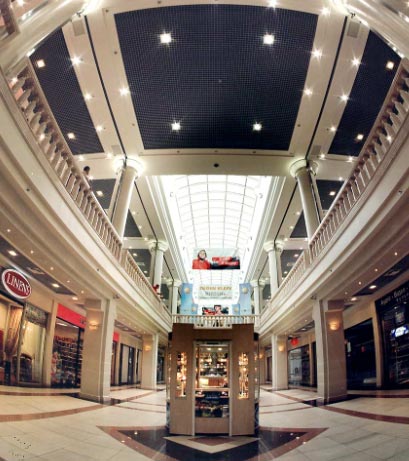|
2008-12-10 23:10:38
 More international businesses are investing in Kyiv’s shopping centers to take advantage of the market’s low supply and booming demand. More international businesses are investing in Kyiv’s shopping centers to take advantage of the market’s low supply and booming demand.
The latest market entrant is Londonbased Meyer Bergman European Retail Partners, an asset management firm that announced in early May it acquired, for an undisclosed price, the Aladdin Shopping Center, filled with European and Ukrainian stores in a Kyiv neighborhood with intense apartment construction and rising real estate prices.
“We believe this center will continue to improve, given its strong tenant base and prime location,” said Zsolt Kohalmi, a principal partner at Meyer Bergman. “In our view, the Ukrainian retail market will continue to grow dynamically, and we look forward to increasing our exposure to this market going forward.”
Though most of Ukraine’s shopping centers are owned by Ukrainian developers, more international retailers, commercial developers and investment firms have been investing in shopping mall developments, said Vadim Livshyts, the managing partner at First Realty Brokerage.
It’s not unusual that shopping malls have as their investors both Ukrainian developers and international investment funds.
Typically, the construction contractors for shopping malls are Ukrainian, Turkish or Polish companies, while architectural design is handled by English, Israeli and German companies, he said.
In Kyiv, 36 shopping centers have been built totaling 700,000 square meters, which will inevitably grow, according to Socmart, a Kyivbased real estate analysis firm monitoring investment in commercial buildings.
International real estate consulting firm DTZ, which opened its Kyiv office in 1994, provided consulting to Meyer Bergman on the Aladdin deal, its first Ukrainian investment into a 16,000 square foot shopping mall built in 2005.
This year, Vietnamese developer N&K is planning a 22,800squaremeter shopping and entertainment center called Pacific Plaza, while the 182,000squarefoot shopping mall Domosfera, under development by Austria’s De Vision, will sell home furnishings, said Olena Duliba, the chief editor of Nerukhomist magazine.
Neither company disclosed their investment. Still, the market is chronically undersupplied, says Natalia Stelmakh, the associate director of real estate investment for DTZ Ukraine.
“According to DTZ estimations, Kyiv will be on the very low side of retail space supply per 1,000 inhabitants compared to other Ukrainian regional cities by the end of 2010,” she said.
To supply demand, construction of about 130,000 square meters of additional retail space is planned for 2008, while about 250,000 square meters are planned for 2009, Stelmakh said.
Demand will exceed supply in the capital’s retail space market for at least the next three years, Duliba said.
Ukraine’s shopping mall market is underdeveloped because of complicated real estate market conditions, including a prohibition on agricultural land sale, as well as a difficult bureaucracy inhibiting construction approval, Livshyts said.
“The problems with acquiring land plots, and the lack of transparency in land acquisition, especially in Kyiv, doesn’t allow international retailers to develop their business substantially,” Livshyts said.
Nevertheless, European retailers are willing to pay inflated rental rates in shopping malls because of the growing Ukrainian consumer market, he said. In fact, vacancy rates are only 2.5 percent.
“Because of a considerable lack of retail space, rental rates are rather high and usually big international retail networks are very tough in rental pricenegotiations,” Livshyts said.
Anchor tenants pay an average of $15 to $25 per square meter, while boutique shop owners pay between $40 to $180 per square meter, Stelmakh said.
Prime locations like’s Kyiv’s central boulevard Khreschatyk demand an average of $300 to $400 per square meter, she said.
Most shopping mall managers want to recruit the top franchises, but opt for local tenants which don’t have the power to negotiate hand pay more for the space, Livshyts said.
Those aiming to sell a shopping mall after it’s built often recruit international tenants to improve its attractiveness, he said.
by Alina Pastukhova
http://www.ukrainians.ca/
|